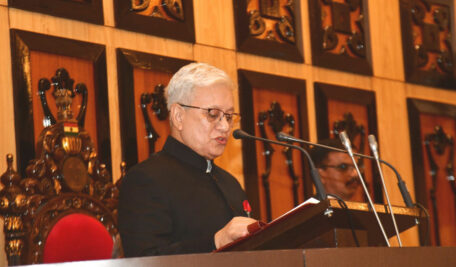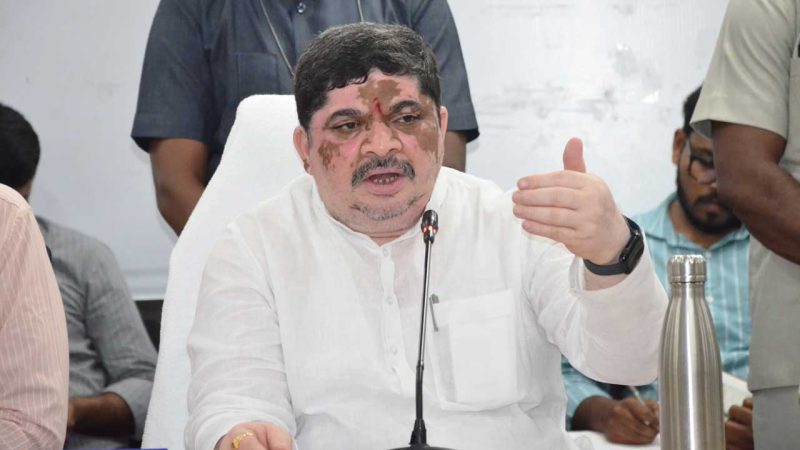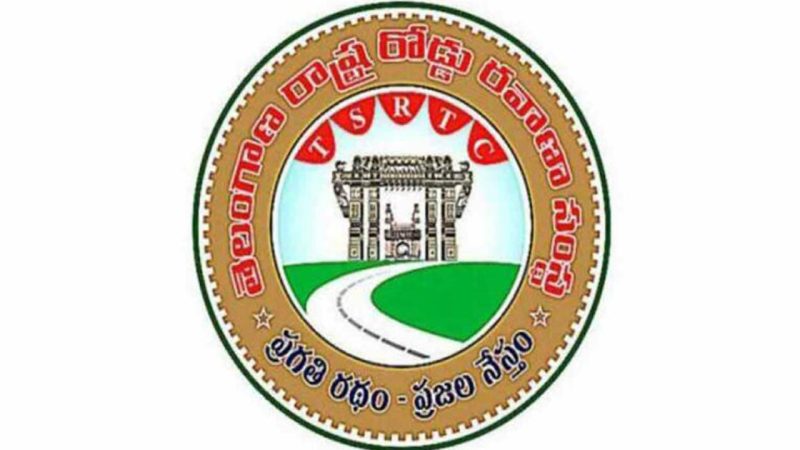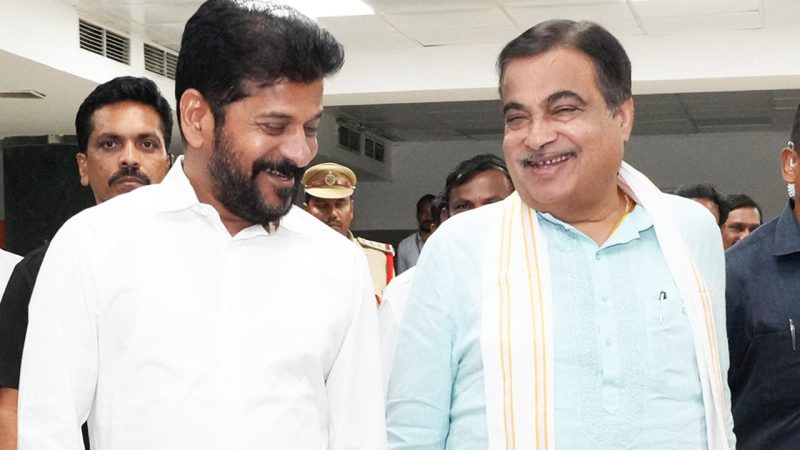Opinion: Can Telangana’s De-notified Tribes hope for better future?
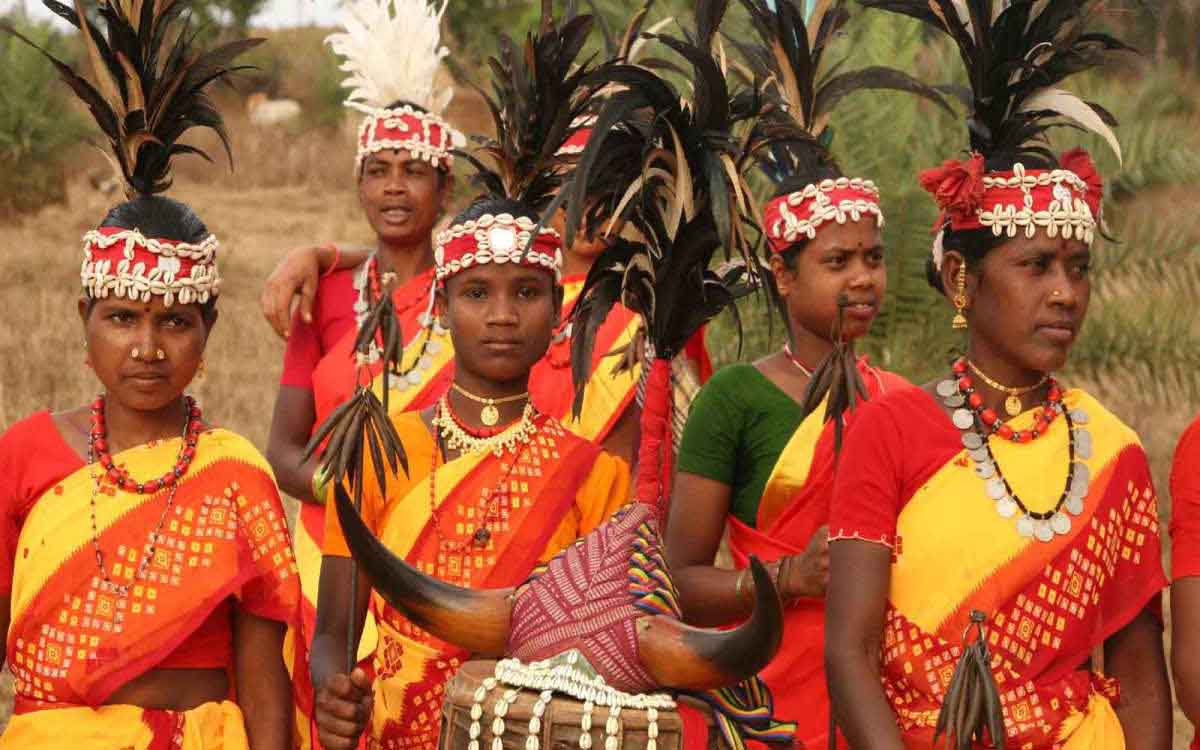
Telangana government’s 42 per cent BC reservation can be a game changer only if the State ensures a special help desk for the De-notified Tribes to access welfare benefits
Published Date – 5 May 2025, 08:26 PM

By Vijay Korra, Santhosh Gugulothu
The Telangana Assembly last month passed two historic Bills: The Telangana Backward Classes, Scheduled Caste, and Scheduled Tribes (Reservation of Seats in Educational Institutions and Appointments or Posts in Services under the State) Bill, 2025, and The Telangana Backward Classes (Reservation of Seats in Rural and Urban Local Bodies) Bill 2025.
These aim at raising the OBC reservation to 42% from 29%, SC to 15% and ST to 10% from 6%, which makes up to 67%, breaking the 50% cap set by the Supreme Court in 1992 in the Indra Sawhney case.
Backward Classes Welfare Minister Ponnam Prabhakar said the Bills ensure the inclusive development of marginalised classes, which was a major concern during the Telangana movement. He also stated that the two Bills were based on robust data from social, economic, educational, employment, political and caste census. In addition, the two Bills were based on a report submitted by a dedicated commission chaired by former bureaucrat Busani Venkateshwara Rao.
Now, the real question arises: Will the two Bills change the fate of Telangana’s DNTs (De-notified Tribes), who are largely placed on the OBC-A list? Are there any special provisions for DNTs? Can the Bills lift DNTs from socio-economic and cultural precarity? What are the mechanisms to implement the OBC reservation?
Who are DNTs?
Even before the British arrived in India, most of the DNT communities practiced traditional or caste-based occupations that required constant travel, preventing permanent settlement. They had unique traditional skills that helped them earn a living. For example, Dommaras were acrobats, Buduga Jangams practiced storytelling, and the Gangireddula community was bullock performers, who played a key role in rural entertainment.
However, the British noticed their movement as suspicious and enacted the Criminal Tribes Act (CTA) in 1871, a law that labelled many of these groups as “born criminals” without evidence. Under this law, many communities like the Dommaras, Budubukkalas, Yerukala, Sugalis, and others were forced to register with the police, put them in “camps/settlements,” and monitor their movements. They could not travel freely anymore, and their traditional livelihoods collapsed. If they broke these rules, they were arrested or punished harshly. The fear of criminal charges constantly haunted them.
DNTs’ lives have not changed despite their de-notification from CTA 1871 in 1952, five years after India’s independence. It means they were no longer officially criminals. Yet they experience the same old problems even today. The stigma did not go away, and their economic struggles continued. DNTs are one of the most socio-economically backward communities spread across the country. Poverty continues to plague them today.
The Criminal Tribes Act of 1871 suppressed their freedom and pride, and despite their de-notification from the Act in 1952, they experience the same old problems even today
The CTA affected more than 200 tribes across India, including 36 communities in Telangana. For instance, Dommara, Pichakuntla (Vamsaraj), Budabukkala, and Pittalollu communities might still be seen as untrustworthy. Removing the label of criminal tribes did not solve everything. They needed support for their socioeconomic growth.
Today, many DNTs are placed under BC, SC and STs lists. In Telangana, most of these communities were placed under the BC-A list. They include communities like the Dommaras, Budaga Jangam, Budubukkalas, Gangireddulas, Vaddera and Pittalollu who have been living on the fringes of society for generations. Historically, they were skilled workers and caste-based occupational performers, but colonial laws labelled them as criminals, which changed their lives forever.
Government Initiatives
The National Commission for De-notified, Nomadic, and Semi-Nomadic Tribes (NCDNT) was set up in 2005 under Balkrishna Sidram Renke to study the socio-economic conditions of DNTs. It estimated their population at 10.74 crore (2001 Census) and recommended targeted measures like separate reservations, census enumeration and State-specific welfare schemes. It was reconstituted in 2015 under Bhiku Ramji Idate and identified 1,526 DNT/NT/SNT communities with a population exceeding 15 crore.
Based on its recommendations, the government launched the SEED scheme, implemented by the Development and Welfare Board for De-Notified, Nomadic and Semi-Nomadic Communities (DWBDNCs), offering livelihood support, coaching, health insurance and scholarships. However, many DNTs remain excluded due to a lack of awareness, frequent mobility, illiteracy, absence of documents, administrative neglect and deep-rooted poverty, which hinder access to these benefits.
Will Quota Help?
In Telangana, the government has raised the BC reservation to 42% from 29%. This means more seats in schools, colleges and government jobs for the 112 BC communities, including DNTs who are listed under BC-A and BC-E. Will this help them? The possible benefits include more opportunities for DNTs as their children could access education or get jobs. Political participation may increase. It may lead to a rise in socio-political awareness among the DNTs, among others.
However, challenges remain for most DNTs who lack awareness about welfare benefits. Competition is another important aspect that the DNTs will face, as those who are well-educated and with good economic backgrounds may take advantage. The reservation may not immediately fix the illiteracy, health issues or stigma associated with their castes.
Follow Tamil Nadu
The Criminal Tribes Act of 1871 suppressed their freedom and pride, and its effects still linger. The new 42% BC reservation could be a game changer, but only if the State ensures a special help desk is established for the DNTs to access welfare benefits. Skill development programmes such as tailoring, mechanics and other employment skills for educated youth are essential alongside quotas. A long-standing demand from the communities is the creation of a separate reservation category for DNTs in line with EWS (Economically Weaker Section) so that it does not encroach upon the existing reservation.
The Telangana government should follow the path of Tamil Nadu, which has implemented 69% of the enhanced reservation since 1990 through amendments to the 9th Schedule of the Indian Constitution, which protects reservation laws from court challenges. The challenge is huge, but a sincere effort and support of all political stakeholders can materialise the impending reservation Bills in the State.
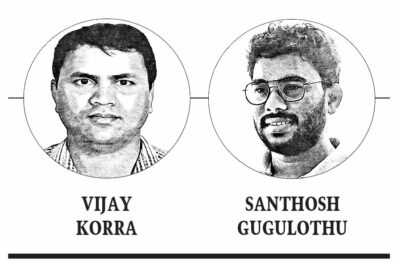
(Vijay Korra is Assistant Professor and Santhosh Gugulothu is Senior Research Fellow at The Centre for Economic and Social Studies [CESS], Hyderabad)

